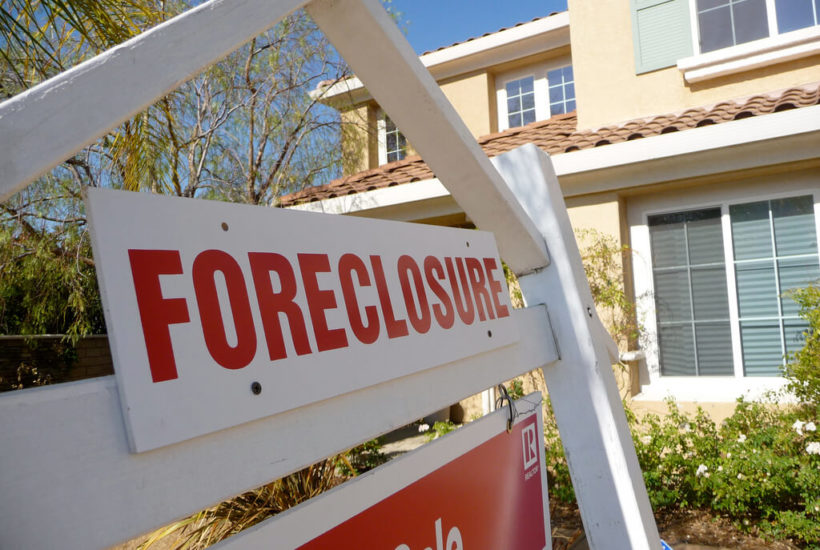Business
The silver lining in pursuing foreclosed homes
Foreclosure is one real estate issue turning the buying and selling process messy.

When the occupant fails to pay his or her monthly mortgage on time, foreclosure is the consequence. Since the occupant doesn’t become a homeowner until the mortgage obligation is complete, the bank or lender can sell the home to buyers without the occupant’s permission.
The pitfalls
There are pitfalls to buying a foreclosed home. While a foreclosed home is less expensive, the home sells as-is, so don’t expect the bank or lender to make repairs. Those repairs are the buyer’s responsibility. A second major risk is dealing with the former occupant’s wrath. The occupant and his/her family could damage the property before eviction, leave unwanted belongings behind, or take illegal items with them (appliances, countertops, flooring, plumbing, etc). Furthermore, the former occupant may sue the buyer for taking ‘their’ home, refuse to move after closing, vandalize the home, or arrive at the home unannounced causing trouble. Extra disadvantages include criminal activity, inheriting liens/property taxes, and a longer closing process. After these pitfalls, it makes pursuing a foreclosed home less enticing and more expensive than buying a move-in ready home.
The silver lining
Should the pitfalls fail to deter buyers from pursuing foreclosed homes, it’s imperative to rely on intelligence and common sense. Learn about the ins and outs of the property before bidding. Once a foreclosed home becomes the buyer’s property, there’s no undoing it. Four tips will assist buyers immensely.

Hire a foreclosure agent
Most real estate agents have expertise in foreclosed homes, but very few specialize in it. Find an agent who specializes in foreclosed homes. These agents know the foreclosure difficulty, so they will mitigate the damage. To find these savvy agents, scroll through foreclosure listings and meet agents assigned to foreclosed homes. In some cases, the buyer only deals with the lender or bank’s agent without a separate buyer’s agent. In turn, there are fewer intermediaries to go through, and that means fewer agents asking for commission costs.
View the property
If it’s possible to view the property’s interior, do so. Take plenty of photos and videos. However, not all banks and lenders will allow it, especially during an auction. Without in-person viewing, it’s difficult to determine interior damage. However, exterior damage is a decent indicator. Notice unkempt lawns, graffiti, and broken windows. Look around the neighborhood for sale/rent signs and boarded homes. Never buy a foreclosed home without viewing it in person.
Get a home inspection
A home inspection from all potential foreclosed properties will confirm or deny arising doubts and/or fears. Home inspections determine cosmetic, underlying, and upcoming repairs the home requires. This is the contingency plan allowing buyers to decline a deal without legal repercussion. Never buy a foreclosed home without a home inspection.
Prep finances before and after foreclosure
The first part is paying for the home and the second is paying for repairs. Fulfill both parts of this section. Achieve the first half by acquiring a pre-approved mortgage or having cash on hand. Achieve the second part by saving money for possible repairs. It’s better to have a surplus of funds for home repair than a shortage.
Foreclosed homes are risky. Most buyers stay away from foreclosed homes because of the complications included in the pitfalls section. There is reward in buying a foreclosed home, but only if buyers place more emphasis on the process and less emphasis on the property’s outer beauty. The winners in this game are the buyers who gained a lovely home with few pitfalls.
(Featured image by BasicGov via Flickr. CC BY-SA 2.0.)
—
DISCLAIMER: This article expresses my own ideas and opinions. Any information I have shared are from sources that I believe to be reliable and accurate. I did not receive any financial compensation for writing this post, nor do I own any shares in any company I’ve mentioned. I encourage any reader to do their own diligent research first before making any investment decisions.

-

 Crypto1 week ago
Crypto1 week agoCaution Prevails as Bitcoin Nears All-Time High
-

 Africa4 days ago
Africa4 days agoBridging Africa’s Climate Finance Gap: A Roadmap for Green Transformation
-

 Biotech2 weeks ago
Biotech2 weeks agoEcnoglutide Shows Promise as Next-Generation Obesity Treatment
-

 Business2 days ago
Business2 days agoThe TopRanked.io Weekly Digest: What’s Hot in Affiliate Marketing [uMobix Affiliate Program Review]
























